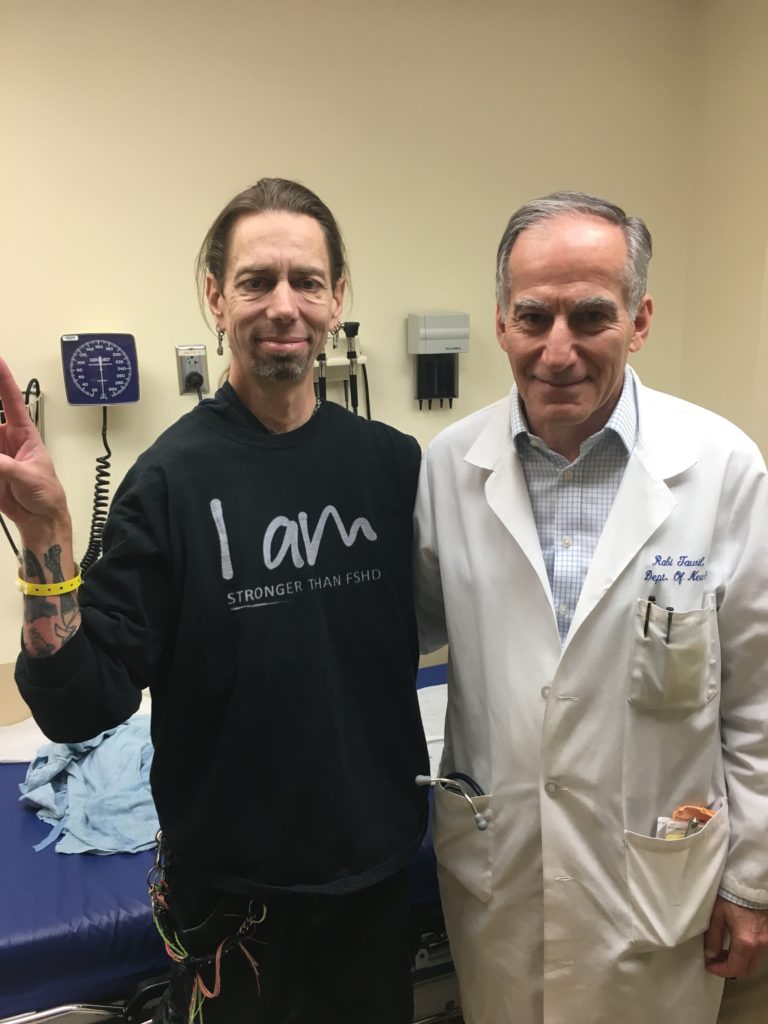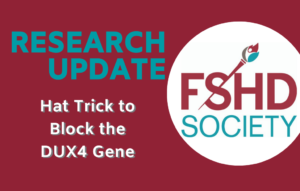
To crack the code of FSHD, patients are absolutely essential
All of the breakthroughs—the discovery of the genetic causes, understanding why some patients vary so greatly in the severity of their symptoms, teasing out the biochemical pathways that could point to future treatments—were made because patients stepped up to the plate.
Too often, we hear patients say they’ll volunteer when there’s a treatment. But we will never get to a treatment unless patients participate in fundamental research now. FSHD is uniquely human, so no laboratory mouse can ever fully model the disease. The genetic “package” that causes FSHD is found only in people. We owe an enormous debt to the patients who give DNA samples. Who submit to long interviews and exhausting physical tests. Allow a surgeon to cut out a small muscle sample. Who fight claustrophobia to lie in the narrow bore of an MRI machine.
Equally important are patients’ family members, both affected and unaffected, who provide the best experimental controls because of their shared genetic and environmental backgrounds. A parent or sibling who has very mild symptoms may hold the key to understanding the factors that protect against the full-blown development of FSHD symptoms in a more severely affected family member.
We are more hopeful today than ever before that a treatment is within sight. We cannot guarantee when that treatment will arrive, but here’s one thing we guarantee: If you volunteer for research, your participation will without question help move us a step closer to that day.
Scientific Overview of FSHD
Read the latest on wikipedia
Glossary of Scientific Terms
miRecule, Inc., is developing a novel treatment for FSHD
In their offices in Maryland, just northwest of Washington, DC, miRecule Inc. and its founder Anthony Saleh, PhD, are hard at work developing a novel treatment for FSHD. In the… Read More »
Progress Report on Therapeutic Accelerator for FSHD
Last week, Mark Stone, the FSHD Society president and CEO, gave his fourth-quarter progress report on the Therapeutic Accelerator for FSHD treatments. His presentation was given via webinar to leadership… Read More »
The Fierce Urgency of Now
“We are now faced with the fact that tomorrow is today. We are confronted with the fierce urgency of now.” Thus Dr. Martin Luther King Jr. exhorted the nation at… Read More »
HAT Trick to Block the DUX4 Gene
Researchers Identify a New Compound that Inhibits the Activity of DUX4 By Alec DeSimone, PhD University of Massachusetts Medical School Led by a team at the University of Minnesota, Minneapolis,… Read More »






